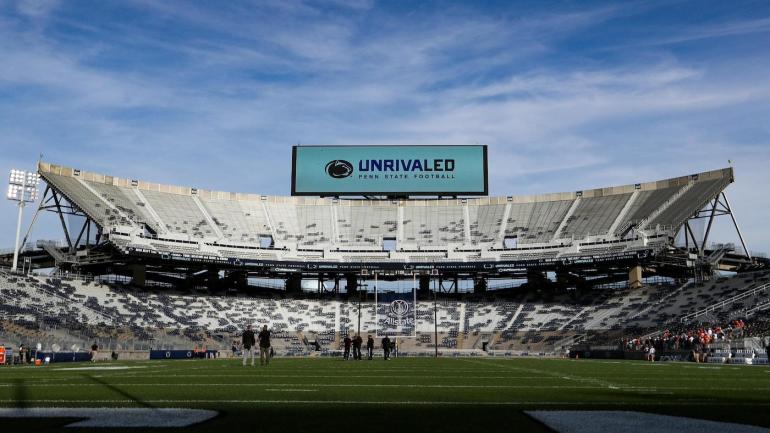
Penn State's Board of Trustees has approved a massive $700 million renovation of Beaver Stadium, the university announced Tuesday. The new upgrades will make the stadium a year-round venue and come right as the College Football Playoff moves toward on-campus sites for first-round games.
The upgrades are a comprehensive rethinking of the stadium entering a new era in college athletics. They include widening concourses, new restrooms, improved concessions, revamped WiFi and improved premium seating. The approved plan will take place over the next three offseasons and is scheduled to be completed in 2027. Due to construction, capacity will be slightly reduced for the 2025 season.
"I'm pleased that the renovation will benefit our student-athletes, elevate Beaver Stadium's significance in driving local and state economies, and ensure Beaver Stadium remains a premier facility in all of college athletics," board of trustees chair Matt Schuyler said in a university press release.
Among the biggest undertakings will be a winterization effort, insulating pipes and other upgrades that will allow for stadium use in the dead of winter. Many of these renovations are expected to be completed before this year's first round of College Football Playoff games on Dec. 20-21.
According to the release, the Beaver Stadium project will be fully paid for through "fundraising, concessions, naming opportunities, sponsorship and ticket sales." Additionally, the upgrades eliminate a $200 million backlog in previously scheduled maintenance costs.
This is the first major renovation of Beaver Stadium since 2001. The venue was built in 1960. The build also includes a new welcome center that will be used year-round for university student recruitment.
"Many recognize Beaver Stadium as the best stadium in college football, and we want to preserve the atmosphere that our fans, alumni and community have come to expect while building on this history of excellence for generations to come," Penn State president Neeli Bendapudi said in a university press release. "The renovations will have a wide variety of positive impacts on our community, help us remain a national leader by attracting top student-athletes and continue serving as a symbol for belonging and pride for students across the Commonwealth."

Why it matters
Penn State has consistently established itself as one of the top 15 programs in the country under coach James Franklin, making it a likely host for the expanded College Football Playoff. However, Beaver Stadium has rarely hosted games into December, when the weather starts to get frigid.
Major football has largely moved away from playing outdoors in the winter because of logistical issues. As an example, the Chicago Bears are planning to abandon historic Soldier Field and build a new domed stadium to streamline logistics.
Of course, college football -- especially in the Big Ten -- prides itself on surviving the elements. Part of the draw of home games is forcing teams from the South and West to brave brutal weather. Upgrading Beaver Stadium for winter is a major step towards making these home games a success.
While there is no track record of the CFP's approach to home venue sites, Penn State wants to ensure it can handle the logistics. If games are canceled or rescheduled because of weather concerns, it could impact the willingness of all parties to return to a venue. Losing a marquee game over inadequate facilities would be a nightmare scenario.
![[object Object] Logo](https://sportshub.cbsistatic.com/i/2020/04/22/e9ceb731-8b3f-4c60-98fe-090ab66a2997/screen-shot-2020-04-22-at-11-04-56-am.png)


















